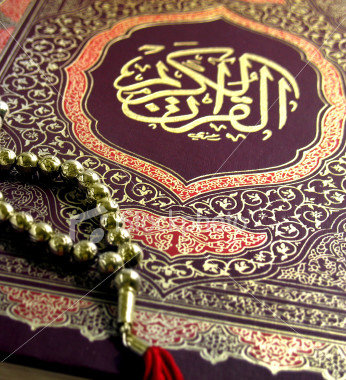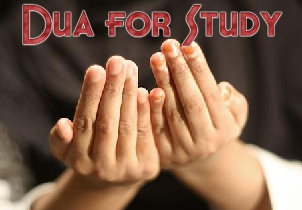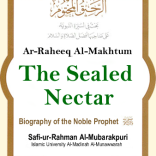Posts Tagged ‘sunnah’
Who Is Imam al-Mahdi?
Posted on: August 4, 2015
- In: All | Christianity | Islam
- Leave a Comment
‘Eid Khutbah : Continuation of good deeds after Ramadan

‘Eid Khutbah : Continuation of good deeds after Ramadan
The Transcript
First Khutbah (sermon)
Praise be to Allah Who has guided His believing servants to do acts of obedience and has made the ways of good and righteous deeds easy for them. I bear witness that there is no god but Allah Who has no partners, and that our leader and Prophet Muhammad is Allah’s Messenger, the best of those who observed fasting and the optional night prayer, and the best of legislators who enacted laws and explained judgments. O Allah grant Your mercy, blessings and peace on the leader of the righteous and the leader mankind and jinn, and on his family, Companions and those who follow their way until the Last Day.
Allahu Akbar [Allah is the Greatest], Allahu Akbar, Allahu Akbar, Allahu Akbar, Allahu Akbar, Allahu Akbar, Allahu Akbar, Allahu Akbar, Allahu Akbar, Allahu Akbar, Allahu Akbar, Allahu Akbar, Allahu Akbar, Allahu Akbar, Allahu Akbar, Allahu Akbar Wa Lillahi Al-Hamd [praise be to Allah].
Praise be to Allah Who has guided us to Islam. We can never be guided except with the help of Allah. Praise be to Allah Who has favored the month of Ramadan over all other months and made it a great opportunity to attain rewards by committing good deeds. During Ramadan, the believers compete in doing acts of obedience and spending in the cause of Allah. During this month, righteous deeds are doubled, mistakes are remitted, ranks of men are raised and supplications are answered by Allah. It is the month of benevolence and blessings. It is the month of mutual consolidation. During this month the provisions of Muslims increase, their faith becomes deeper and they compete in performing Taraweeh prayer, late optional night prayer, recitation of the Quran and giving charity to the needy among relatives, neighbors and poor people in general. This is in accordance to Allah’s saying which means:
“And hasten to forgiveness from your Lord and a garden as wide as the heavens and earth, prepared for the righteous.” [Surah Ali ‘Imran 3:133]
Allah also Says (what means):
“…And do good; indeed, Allah loves the doers of good.” [Surah Al Baqarah 2:195]
The verses that encourage doing good in the cause of Allah are many. Therefore, we should continue the good deeds that we have initiated in Ramadan and extend them after its termination. You should know that the sign of the acceptance of a good deed by Allah is that you follow it with another good deed, and the sign of rejecting good deeds by Allah is that you follow it by committing sins. This should be well understood by those people who feel happy and relieved after the termination of Ramadan as they think that with the end of Ramadan they will be free to commit whatever sins they wish, and rebel against the commands of their Lord.
Allah is the Greatest – with every fasting and breaking of Fast, with each instance of growing of trees and the blooming of fruits, whenever a crescent appears and then grows and becomes a full moon, whenever rain falls and pours forth — Allah is the Greatest! Allah is the Greatest! Praise be to Allah.
Servants of Allah! Turn in repentance to your Lord and supplicate Him sincerely by offering your duty to Him. Be sincere in worship, supplication, in your fear of Allah and in your wish to attain His mercy. Rely on Allah in all your affairs. Seek His aid and protection, as He is the best supporter and disposer of affairs. He is the Savior and the Answerer of whoever asks Him with sincerity. Allah Says what means:
“And when My servants ask you [O Muhammad] concerning Me – indeed I am near. I respond to the invocation of the supplicant when he calls upon Me. So let them respond to Me [by obedience] and believe in Me that they may be [rightly] guided.” [Surah Al Baqarah 2:186]
Let us then listen to Allah’s call and believe in His Messenger. Let this assemblage be a reminder of His assemblage of the Resurrection when all the creations be gathered naked and barefooted, as they were originally created. We will be gathered at one place. The believers will be received by the Angels with good tidings and congratulations for the salvation from torture. The Angels will say to the survivors on that day:
“Do not fear and do not grieve but receive good tidings of Paradise, which you were promised!” [Surah Fussilat 41:30]
Allah describes the state of the believers on that day saying:
“[Some] faces, that Day, will be bright – Laughing, rejoicing at good news..” [Surah ‘Abasa 80:38-39]
As for the unbelievers on that day Allah describes them as such:
“And [other] faces, that Day, will have upon them dust. Blackness will cover them. Those are the disbelievers, the wicked ones.” [Surah ‘Abasa 80:40-42]
Allahu Akbar [Allah is the Greatest], Allahu Akbar, Allahu Akbar La Ilaha Illa Allah [there is no god but Allah], Allahu Akbar, Allahu Akbar, Allahu Akbar Wa Lillahi Al-Hamd [praise be to Allah]. Allahu Akbar as numerous as the number of our sins until they are forgiven (by the virtue of this expression).
Glorified be Allah, Who is worthy of all glorifications? Allah Says what means:
“So exalted is Allah when you reach the evening and when you reach the morning. And to Him is [due all] praise throughout the heavens and the earth. And [exalted is He] at night and when you are at noon.” [Surah Al Rum 30:17-18]
O Allah! As you have sent to us Your Prophet Muhammad, make our houses well maintained and full of life (due to worship practiced therein) and do not condemn us on account of our bad deeds and be merciful to us as You are the most Merciful of those who show mercy.
O Allah! As You are The Most Gracious of those who show graciousness, and the Greatest of all those who claim greatness, make for us a way out of each distress and grief.
O Allah! Grant blessings on Prophet Muhammad, son of Abdullah, the Prophet of mercy and the Messenger of guidance, as many times as the number of those who offered prayers on him right from his mission until the Day of Resurrection.
O Allah! Grant him intercession on our behalf and resurrect us in his group and under his banner and decree for us to drink from his font (the Hawd) so that we never feel thirsty thereafter.
O Allah! Grant us a joyful life, a bounteous provision and a righteous deed! O Allah! Grant mercy on this gathering and grant us protection from error after departing!
Servants of Allah! Your actual joy of festivals should be through continuing to practice acts of obedience and good deeds, kindness to parents, maintaining the ties of kinship and kindness to relatives, the poor and orphans. Hasten in reconciliation among yourselves, since this occasion is the appropriate time for this purpose. Give measure and weight with full justice. Give preference to Allah’s judgment above your whims. None of us can be a true believer until his liking complies with the teachings of Allah’s Messenger. Know that: “Injustice will cause darkness on the Day of Resurrection.” [Al-Bukhari & Muslim]
The Prophet also said: “Whoever causes harm to others Allah will harm him, and whoever makes it difficult for people Allah will make it difficult for him.” [At-Tirmithi]
Let us raise our children according to the precepts of Islam. Let us teach them to lead a frugal life and manage financial affairs well. Let us teach them how to spend their money properly on the occasion of the festival of ‘Eid. Let us help those who have attained puberty to marry, in accordance with the Prophet’s saying: “O youth! Let those who can afford marriage among you marry! For marriage is apt to give stronger ability to restrain one’s gaze and protect one’s chastity.” O you youth who can afford marriage, let all of you hasten to marry. O you guardians of the girls, who are entrusted to you by Allah, hasten to marry them without imposing too many restrictions and complications with regard to dowers, by the coming festival they should be married to their suitable mates.
Allahu Akbar, Allahu Akbar, Allahu Akbar Wa Lillahi Al-Hamd [Allah is the Greatest. Praise be to Allah.] I seek Allah’s forgiveness for you, for me and all Muslims.
Second Khutbah (sermon)
Praise be to Allah, Who blesses us with repeated assemblies and festivals. He is the gatherer of mankind together against a Day about which there is no doubt, for Allah never fails in His promise. I praise Him for the success and bounties that He offers. I bear witness that there is no god but Allah to Whom all creatures will return. He has power over all things. I bear witness that our Prophet Muhammad is the leader of the righteous and the master of the followers of Allah’s way. May Allah grant blessings on him and all those who have followed his way until the Last Day.
Allahu Akbar [Allah is the Greatest], Allahu Akbar, Allahu Akbar, Allahu Akbar, Allahu Akbar, Allahu Akbar, Allahu Akbar, Allahu Akbar, Allahu Akbar, Wa Lillahi Al-Hamd [praise be to Allah].
Servants of Allah! Know that charity obliterates sin, extinguishes the wrath of the Lord and protects from evil destinies. On that day ‘Eid, a Muslim should not forget his brother Muslims who are deprived of the joy of the festival on account of perishing due to famines and destructive wars that are taking place in their countries. Know that whoever is not concerned about the affairs of Muslims will not be counted as belonging to them. Let’s then remember the poor and the needy, especially those inflicted by drought in Africa, and those who strive in the cause of Allah. O Allah support them with Your victory and give them dominance in their land. O Allah support them and gather their hearts. You are the Answerer of all supplications.
O Muslims! Beware of arrogance and its manifestations, since the arrogant people will be resurrected the size of atoms and people will tread them with their feet. O pious Muslim women! Preserve your adornment and do not disclose it nor apply perfume in the presence of any men other than your Mahram relatives [those who are not allowed to marry you] or your husbands. Allah Says what means:
“And abide in your houses and do not display yourselves as [was] the display of the former times of ignorance…” [Al Ahzab 33:33]
Let’s enjoy the ‘Eid festival without pride. Let’s entertain ourselves without neither exposure nor intermingling between the opposite sexes. Let’s proclaim Allah’s greatness, since Takbeer [proclaiming Allah’s greatness] is the slogan of Muslims during their festivals.
Allahu Akbar [Allah is The Greatest], Allahu Akbar, Allahu Akbar, La Ilaha Illa Allah [There is no god but Allah] Allahu Akbar, Allahu Akbar, Wa Lillahi Al-Hamd [Praise be to Allah.]
Lastly, do not forget to observe fasting for six days in the month of Shawwaal, as the Prophet said: “Whoever fasts (the month of) Ramadan then follows it with six days in Shawwal, will be considered as if he has observed Fasting during the whole year.” [Muslim]
JazakAllah khair for reading..Please share !
[post this Article on your Facebook Wall to share with friends.just click above “Share” button.]
![]()
[ Don;t forget to share this article after reading,
Copying this Article ? please add “source link” in website or in Facebook NOTE.
Please help us to spread this article..]
Click below picture for Ramadan Resources page.

Note: Assalam Alaykum,Liked this Website and Articles ? hav some tips 4 us ? Why don’t you share views/tips/feedback about website.I love to read it. Click here to leave your feedback or read others feedback.

Stay Connected With Free Updates
 |
 |
 |
If you cannot visit this site everyday and would like to receive our articles everyday via email, please click here and enter your email address in the new window.
PLEASE CHK YOUR EMAIL AFTER SUBMITTING EMAIL,YOU MUST CONFIRM SUBSCRIPTION ! |
Takbeer ‘Eid-ul Fitr
Posted on: August 8, 2013
- In: Islam | Ramadaan | Ramadan
- 3 Comments
Ramadan : Zakat al-Fitr
Posted on: August 8, 2013
- In: All | Islam | Ramadaan | Ramadan
- Leave a Comment
Ramadan : Zakat al-Fitr
Meaning
Zakat al-Fitr is often referred to as Sadaqah al-Fitr. The word Fitr means the same as Iftar, breaking a fast and it comes from the same root word as Futur which means breakfast. Thus, Islamically, Zakat al-Fitr is the name given to charity which is distributed at the end of the fast of Ramadan.
Classification
Sadaqah al-Fitr is a duty which is Wajib on every Muslim, whether male or female, minor or adult as long as he/she has the means to do so. The proof that this form of charity is compulsory can be found in the Sunnah whereby Ibn `Umar reported that the Prophet (peace be upon him) made Zakat al-Fitr compulsory on every slave, freeman, male, female, young and old among the Muslims; one Sa` of dried dates or one Sa` of barley. [Bukhari – Arabic/English, vol. 2, p. 339, no. 579] The head of the household may pay the required amount for the other members. Abu Sa’id al-Khudri said, “On behalf of our young and old, free men and slaves, we used to take out during Allah’s Messenger’s (peace be upon him) lifetime one Sa` of grain, cheese or raisins”. [Muslim – English transl. vol. 2, p. 469, no. 2155]
Significance
The significant role played by Zakat in the circulation of wealth within the Islamic society is also played by the Sadaqah al-Fitr. However, in the case of Sadaqah al-Fitr, each individual is required to calculate how much charity is due from himself and his dependents and go into the community in order to find those who deserve such charity. Thus, Sadaqah al-Fitr plays a very important role in the development of the bonds of community. The rich are obliged to come in direct contact with the poor, and the poor are put in contact with the extremely poor. This contact between the various levels of society helps to build real bonds of brotherhood and love within the Islamic community and trains those who have, to be generous to those who do not have.
Purpose
The main purpose of Zakat al-Fitr is to provide those who fasted with the means of making up for their errors during the month of fasting. Zakat al-Fitr also provides the poor with a means with which they can celebrate the festival of breaking the fast (Eid al-Fitr) along with the rest of the Muslims. Ibn Abbas reported, “The Prophet (peace be upon him) made Zakat al-Fitr compulsory so that those who fasted may be purified of their idle deeds and shameful talk (committed during Ramadan) and so that the poor may be fed. Whoever gives it before Salah will have it accepted as Zakat, while he who gives it after the Salah has given Sadaqah.” [Abu Dawud – Eng. transl. vol. 2, p. 421, no. 1605 – rated Sahih by Shaikh Naser Al-Albani] Hence, the goal of Sadaqah al-Fitr is the spiritual development of the Believers. By making them give up some of their wealth, the believers are taught the higher moral characteristics of generosity, compassion (sympathy for the unfortunate), gratitude to Allah and the righteousness. But, since Islam does not neglect man’s material need, part of the goal of Zakat al-Fitr is the economic well-being of the poorer members of society.
Conditions
Zakat al-Fitr is only Wajib for a particular period of time. If one misses the time period without a good reason, he has sinned and can not make it up. This form of charity becomes obligatory from sunset on the last day of fasting and remains obligatory until the beginning of Salah Eid al-Fitr (i.e. shortly after sunrise on the following day). However, it can be paid prior to the above mentioned period, as many of the Sahabah [companions of the Prophet (peace be upon him)] used to pay Sadaqah al-Fitr a couple days before the `Eid. Nafi reported that the Prophet’s companion Ibn `Umar used to give it to those who would accept it and the people used to give it a day or two before the Eid al-Fitr. [al-Bukhari – Arabic/English, Vol. 2, p.339, no. 579] Ibn `Umar reported that the Prophet (peace be upon him) order that it (Zakat al-Fitr) be given before people go to make the Salah (Eid al-Fitr). And Ibn `Abbas reported that the Prophet (peace be upon him) said, “Whoever gives it before the Salah will have it accepted as Zakat, while he who gives it after the Salah (will not, for it will only be considered as) ordinary charity. Therefore, one who forgets to pay this Zakat al-Fitr on time should do so as soon as possible even though it will not be counted as Zakat al-Fitr.
Rate
The amount of Zakat is the same for everyone regardless of their different income brackets. The minimum amount is one Sa` (two handfuls) of food, grain or dried fruit for each member of the family. This calculation is based on Ibn `Umar’s report that the Prophet (peace be upon him) made Zakat al-Fitr compulsory and payable by a Sa` of dried dates or a Sa` of barley. The Sahabi, Abu Sa`id al-Khudri said, “In the Prophet’s time, we used to give it (Zakat al-Fitr) as a Sa` of food, dried dates, barley, raisins or dried cheese”. [al-Bukhari – Arabic/English vol. 2, p. 340, no. 582]
JazakAllah khair for reading..Please share !
[post this Article on your Facebook Wall to share with friends.just click above “Share” button.]
![]()
[ Don;t forget to share this article after reading,
Copying this Article ? please add “source link” in website or in Facebook NOTE.
Please help us to spread this article..]
Click below picture for Ramadan Resources page.

Note: Assalam Alaykum,Liked this Website and Articles ? hav some tips 4 us ? Why don’t you share views/tips/feedback about website.I love to read it. Click here to leave your feedback or read others feedback.

Stay Connected With Free Updates
 |
 |
 |
If you cannot visit this site everyday and would like to receive our articles everyday via email, please click here and enter your email address in the new window.
PLEASE CHK YOUR EMAIL AFTER SUBMITTING EMAIL,YOU MUST CONFIRM SUBSCRIPTION ! |
- In: All | Islam | Ramadaan | Ramadan
- 4 Comments
Laylatul Qadr – Plan to Maximize Worship in Last 10 Days of Ramadan!
Allah (glorified and exalted be He) says in the Qur’an: The Night of Decree is better than a thousand months. The angels and the Spirit descend therein by permission of their Lord for every matter. Peace it is until the emergence of dawn. [Qur’an: 97:3-5]
The blessed Laylatul Qadr can be found in any of the last 10 nights of Ramadan, which are the most blessed nights of the year. As such, we should increase our worship and devotion during this period.
Aisha (may Allāh be pleased with her) reported: With the start of the last ten days of Ramadan, the Prophet (peace and blessings of Allāh be upon him) used to tighten his waist belt (i.e. work harder) and used to pray the whole night, and used to keep his family awake for the prayers. [Bukhari]
Abu Hurayrah (may Allāh be pleased with him) relates that the Prophet (peace and blessings of Allāh be upon him) said: “Whoever stands (in the voluntary night prayer of) Ramadan out of faith and in the hope of reward, his previous sins will be forgiven. And whoever spends the night of Lailat Al-Qadr in prayer out of faith and in the hope of reward, his previous sins will be forgiven.” [Sunan an-Nasa’i]
Subhan Allah! Such immense rewards are to be gained during these blessed 10 nights. How can we afford to miss out on them? Who is to say that we will live to see the next Ramadan? We MUST make the best of these 10 nights. If we cannot manage all of the 10 nights, then as many as we can manage, particularly on the odd-numbered nights: 21st, 25th, 27th and 29th.
There is a saying that a person who fails to plan, plans to fail. So I have created a Worship Plan that we can use to maximize these blessed 10 nights of Ramadan. But first, there are a few points to consider:
10 Points to Consider in the Worship Plan
- Remain in I’tikaf: The best way of catching the blessed night is to remain in I’tikaf, which both men and women can do. If it is not possible for one to remain in I’tikaf for the whole of the 10 days and nights, then one should try to remain in I’tikaf for as many days and nights possible. It is also possible to make intention of Nawafil I’tikaf each and every time one enters the masjid to gain rewards for the time spent in the masjid.
- Worship all the 10 nights: Try to worship the whole of the 10 nights or as many days you can manage as that is the best way to catch the unimaginable and incomprehensible rewards of Laylatul Qadr. Each and every good deed from Maghrib until Fajr on Laylatul Qadr is rewarded a minimum of at least 83 years’ of worship. Subhan Allah, that is longer than most of us will live!
- Best dua of the last 10 nights: اَللَّهُمَّ اِنَّكَ عَفُوٌّ ، تُحِبُّ الْعَفْوَ فَاعْفُ عَنِّي
Aisha (may Allāh be pleased with her) reported: I asked: “O Messenger of Allah! If I realize Lailat-ul-Qadr (Night of Decree), what should I supplicate in it?” He (peace and blessings of Allāh be upon him) replied, “You should supplicate: Allahumma innaka ‘afuwwun, tuhibbul-’afwa, fa’fu ‘anni (O Allah, You are Most Forgiving, and You love forgiveness; so forgive me).” [At-Tirmidhi]. - Give charity: Any good act such as charity during Laylatul Qadr is rewarded like you have done it for over 83 years.
- Eat light: As you will be staying up until Fajr, the more you eat, the harder it will be for you to stay up and the less productive you will be!
- Hydrate well: Keep some water with you at all times. This will help you stay up, feel energised and refreshed and have a clearer mind.
- Complete all tasks beforehand: Make arrangements to clear as many of your pending tasks as possible or make a plan for tackling them later. This way, we are free to worship during the 10 nights without being distracted by worldly tasks.
- Show exemplary character: The Prophet (peace and blessings of Allāh be upon him) said: “Nothing will be heavier on the Day of Resurrection in the Scale of the believer than good manners. Allah hates one who utters foul or coarse language.” [At- Tirmidhi]. So we must aim to be the best in character during these blessed nights and continue to do so for the rest of the year. We must not argue, swear, backbite, slander or gossip.
- No time wasting: We must make a firm intention that during these blessed 10 nights, we will not take part in idle talk, watch TV, play computer games or spend time on the social media. There are 355 days in the year for all that – if you really cannot resist. This is just 10 nights! There will be indeed an utter loss and regret for those of us who waste these blessed 10 nights.
- Making life changes: We should make the necessary changes to improve ourselves as Muslims and what better time to make such changes than during these blessed 10 nights where we can change our lives forever. We must internalise these changes and make a firm commitment to Allah (glorified and exalted be He), and maybe that he will wipe off our sins until we become newborn babies, In sha Allah.
The Worship Plan
The following is a possible worship routine for the last 10 blessed nights of Ramadan. It should be adjusted according to your local time.
09:30 pm – 10:00 pm: Break fast with dates and water and pray Maghrib (men with congregation and women at home). Afterwards pray the 2 raka’ahs of sunnah and as many nawafil (voluntary) prayers in sets of 2 raka’ahs as you can manage.
- Tip: The Prophet (peace and blessings of Allāh be upon him) said: “Whoever draws near to Allah during it (Ramadan) with a single characteristic from the characteristics (voluntary) goodness, he is like whoever performs an obligatory act in other times. And whoever performs an obligatory act during it, he is like whoever performed seventy obligatory acts in other times.” [Sahih Ibn Khuzaymah, no. 1887]
Each fard prayer during Ramadan entails a reward of 70 obligatory prayers and each voluntary prayer entails a reward of a fard prayer. Can you imagine the rewards of voluntary and fard prayers during Laylatul Qadr? Subhan Allah! You will be rewarded like you have prayed the fard and voluntary prayers for over 83 years.
10:00 pm – 10:15 pm: Eat light to have optimum energy for worship. Avoid heavy and fried foods, as they will make you lethargic.
- Tip: The lighter your stomach, the more worship you can perform. The more worship you perform, the more reward you will obtain, In sha Allah.
10:15 pm – 10:30 pm: Get ready to pray Isha’ and Taraweeh. Make ghusl or wudu. Pray 2 raka’ahs tahiyyatul wudu after every wudu. Wear your best clothes and put on attar, use a miswaak and comb your hair, beard etc.
- Tip 1: Looking your best has a significant impact in making you more productive! These are the nights of maximum productivity! So look and smell good to be more productive!
- Tip 2: Walk to the masjid if you are not in I’tikaf. Each and every step is rewarded like you have been walking to the masjid for over 83 years! Subhan Allah!
10:30 pm – 12:00 am: Pray Isha’ and Taraweeh. Pray 2 raka’ahs of tahiyyatul masjid upon arriving at the masjid and 4 raka’ahs of sunnah (this is often neglected) before the 4 fard of Isha’.
- Tip: Praying Taraweeh during Laylatul Qadr will bring rewards of over 83 years for each and every letter recited by the imam and for each and every prostration (sajda).
12:00 am – 12:30 am: As soon as Taraweeh is completed, prepare for worship until Fajr. Make fresh wudu or ghusl if you wish to. Drink water. If you are hungry, eat (light). Either stay at the masjid or go home immediately. Do not partake in any idle talk and go straight to the spot where there will be no disturbances and begin worship immediately. There should be no procrastination during these blessed 10 nights.
- Tip: The less time we waste, the more time we have for worship. The more time we have for worship, the more we can gain unimaginable rewards during these blessed 10 nights.
12:30 am – 1:30 am: Recite the Qur’an, contemplating and pondering over the words of Allah (glorified and exalted be He).
- Tip: The Noble Qur’an was revealed during Laylatul Qadr. So surely we should spend the last 10 nights of Ramadan reciting the Qur’an. Each and every letter is normally rewarded 10 good deeds. During Ramadan, this is increased further but during Laylatul Qadr each letter will be rewarded like one has recited it for over 83 years. Subhan Allah!
1:30 am – 2:00 am: Pray nafl salah or recite the Qur’an. Recite the Laylatul Qadr dua as much as possible to wipe out your sins.
- Tip: Salaatul tasbih contains a dhikr (remembrance of Allah (glorified and exalted be He)), which is one of the best glorifications of Allah (glorified and exalted be He) [Abu Dawud]
Subhaanallaahi walhamdu lillaahi walaa ilaaha illallaahu wallaahu Akbar
This is recited 300 times during this prayer. So can you imagine the rewards of reciting this prayer during Laylatul Qadr? Subhan Allah!
2:00 am – 2:45 am: 8 raka’ahs of tahajjud prayer with long sajdas, reciting as many surahs as you know. Knowing beforehand the meaning of the surahs that you will be reciting will allow you to attain khushu.
- Tip: The best nawafil prayer is tahajjud as it is a prayer that allows you to get closer to Allah (glorified and exalted be He). It can be prayed after Isha’ until just before Fajr begins. The best recitation of the Qur’an is done during tahajjud prayer. You should recite as much of the Qur’an as you have memorised. In the long prostrations, beg Allah (glorified and exalted be He) for forgiveness and mercy and surely He will never turn away his slaves who beg of him during this prayer.
2:45 am – 3:00 am: Eat suhoor slightly earlier so you can spend the last 30 minutes in dua. The dua just before Fajr is the best and most accepted dua, and any dua on Laylatul Qadr is accepted without a doubt, In sha Allah.
- Tip: Prepare suhoor during the day and store it in the fridge as nothing should get in the way of our worship during these blessed nights. Preparing suhoor beforehand leaves us with more time to worship.
3:00 am until Fajr begins: Devote the last 30 minutes in dua. Beg and cry unto Allah (glorified and exalted be He). Praise and glorify Him by using His beautiful names, asking for His mercy and forgiveness and for our parents, families and ourselves. Ask for anything that your heart desires. Include duas for the Ummah. Surely Allah (glorified and exalted be He) will accept each and every sincere dua during these blessed 10 nights, especially on Laylatul Qadr!
- Tip: Make a dua list and be sure to cover everything you can think of so that your mind does not go blank when making duas on these blessed nights.
- Few Important Articles Related to Dua,If you never read then its time to read now..
Best Time to Make Dua
25 Forgiveness Dua from Holy Quran
Mistakes Prevent Acceptance of Dua
The POWER of DUA
Repeat this schedule for each and every night of worship during the last 10 nights of Ramadan and know that on at least one of the nights, we will gain the rewards equivalent to those of more than 83 years. Subhan Allah that is longer than most of us will live!
May Allah (glorified and exalted be He) enable us to make the best of these nights. May He enable us to catch the blessed Laylatul Qadr and gain the rewards that are promised for it. Ameen.
Farrukh Paasha
JazakAllah khair for reading..
So,you think this Article will help you ? if yes then share with friends,it will InshahAllah help them also and we know that who ever will follow tips given in this Article,you will get additional rewards..Which will be Equal to the one Who will do listed deeds.don;t miss chance !
Share and Fill your both pockets with rewards…! 😉
[post this Article on your Facebook Wall to share with friends.just click above “Share” button.]
![]()
[ Don;t forget to share this article after reading,
Copying this Article ? please add “source link” in website or in Facebook NOTE.
Please help us to spread this article..]
Click below picture for Ramadan Resources page.

Note: Assalam Alaykum,Liked this Website and Articles ? hav some tips 4 us ? Why don’t you share views/tips/feedback about website.I love to read it. Click here to leave your feedback or read others feedback.

Stay Connected With Free Updates
 |
 |
 |
If you cannot visit this site everyday and would like to receive our articles everyday via email, please click here and enter your email address in the new window.
PLEASE CHK YOUR EMAIL AFTER SUBMITTING EMAIL,YOU MUST CONFIRM SUBSCRIPTION ! |
When the Night Equals a Thousand
Muhammad Alshareef

It was narrated that in the days that Musa alayhis salaam wandered with Bani Israeel in the desert, an intense drought befell them. Together, they raised their hands towards the heavens praying for the blessed rain to come. Then, to the astonishment of Musa alayhis salaam and all those watching, the few scattered clouds that were in the sky vanished, the heat poured down, and the drought intensified.
It was revealed to Musa that there was a sinner amongst the tribe of Bani Israeel who had disobeyed Allah subhaanahu wa ta ‘aala for more than forty years of his life. “Let him separate himself from the congregation,” Allah subhaanahu wa ta ‘aala told Musa alayhis salaam. “Only then shall I shower you all with rain.”
Musa alayhis salaam then called out to the throngs of humanity, “There is a person amongst us who has disobeyed Allah for forty years. Let him separate himself from the congregation and only then shall we be rescued from the drought.”
That man waited, looking left and right, hoping that someone else would step forward, but no one did. Sweat poured forth from his brow and he knew that he was the one. The man knew that if he stayed amongst the congregation all would die of thirst and that if he stepped forward he would be humiliated for all eternity.
He raised his hands with a sincerity he had never known before, with humility he had never tasted, and as tears poured down on both cheeks he said, “O Allah, have mercy on me! O Allah, hide my sins! O Allah, forgive me!”
As Musa alayhis salaam and the people of Bani Israeel waited for the sinner to step forward, the clouds hugged the sky and the rain poured. Musa alayhi salaam asked Allah subhaanahu wa ta ‘aala, “O Allah, you blessed us with rain even though the sinner did not come forward.”
And Allah subhaanahu wa ta ‘aala replied, “O Musa, it is for the repentance of that very person that I blessed all of Bani Israeel with water.”
Musa alayhis salaam, wanting to know who this blessed man was, asked, “Show him to me O Allah!”
Allah subhaanahu wa ta ‘aala replied, “O Musa, I hid his sins for forty years, do you think that after his repentance I shall expose him?”
PART II
Ibn Jareer narrates on the authority of Mujaahid, that there was a man from Bani Israeel who used to spend the night in prayer. Then during the day he would fight the enemy in the way of Allah until the evening and he did this for a thousand months. And so Allah revealed:
Verily, We have sent it (the Qur’an) down in the Night of Al-Qadr (the Night of Destiny or the Night of Power). / And what will make you know what the Night of Al-Qadr is? / The Night of Al-Qadr is better than a thousand months (i.e. worshipping Allah this night is better than worshipping Him a thousand months) (Al-Qadr 97/1-3).
Allah subhaanahu wa ta ‘aala revealed the Qur’an in the most blessed month – the month of Ramadan. And on the 27th night of this month comes the Night of Al-Qadr (Laylatul Qadr), which is better than a thousand months. On the authority of Mujaahid, Sufyaan Ath-Thawree reports that Laylatul Qadr being better than a thousand months means that the good deeds performed on it, fasting on it, and standing in prayer on it are better than a thousand months worth of good deeds, prayer and fasting.
It is reported from Abu Hurayrah that when the month of Ramadan came, the Messenger of Allah said:
“The month of Ramadan has come, a blessed month in which Allah has made it obligatory for you to fast; in it the gates of Paradise are opened and the gates of Hell are closed and the devils are chained. In it is a night better than a thousand months, whoever loses the benefit of it has lost something irreplaceable” (Imam Ahmad and An-Nasaa’i).
It is reported on the authority of Abu Hurayrah, that Allah’s Messenger sal Allaahu alayhi wa sallam said:
“Whoever stood in prayer on Laylatul Qadr in faith and hoping for a reward from Allah, he will have all of his previous sins forgiven” (Bukhari and Muslim).
This one night surpasses the value of 30,000 nights. The sincere believer who worries day and night about his sins and phases of neglect in his life, patiently awaits the onset of Ramadan. During it, he hopes to be forgiven by Allah subhaanahu wa ta’aala for past sins, knowing that the Prophet sal Allaahu alayhi wa sallam promised that all who bow down during the last ten days shall have all their sins forgiven. To achieve this, the believer remembers the Prophet sal Allaahu alayhi wa sallam’s advice in different sayings wherein he used words like ‘seek’, ‘pursue’, ‘search’ and ‘look hard’ for Laylatul Qadr.
Laylatul Qadr is the most blessed night. A person who misses it has indeed missed a great amount of good. The mu‘min should search for it in the last ten nights of Ramadan, passing the nights in worship and obedience. For those who catch the opportunity, their gift is that of past sins wiped away.
The Messenger of Allah sal Allaahu alayhi wa sallam illustrated for us some of the things we should be doing on this Grand Night. From his blessed Sunnah we find the following:
Praying Qiyaam (Night Prayer):
It is recommended to make a long qiyaam prayer during the nights on which Laylatul Qadr could fall. This is indicated in many ahadith, such as:
“Whoever stands [in qiyaam] in Laylatul Qadr [and it is facilitated for him] out of faith and expectation [of Allah’s reward], will have all of his previous sins forgiven” (Bukhari and Muslim).
Making Supplications:
It is also recommended to make extensive supplications on this night. Aisha radi Allahu anha reported that she asked Allah’s Messenger sal Allaahu alayhi wa sallam:
“O Messenger of Allah! If I knew which night is Laylatul Qadr, what should I say during it?” And he instructed her to say, “Allahumma innaka ‘afuwwun tuhibbul ‘afwa fa ‘fu ‘annee – O Allah! You are forgiving, and you love forgiveness. So forgive me” (Ahmad, Ibn Majah and Tirmidhi).
Abandoning Worldly Pleasures for the Sake of Worship:
It is further recommended to spend more time in worship during the nights on which Laylatul Qadr is likely to fall. This calls for abandoning many worldly pleasures in order to secure the time and thoughts solely for worshipping Allah subhaanahu wa ta’aala. Aisha radi Allahu anha reported:
“When the [last] ten nights started, the Prophet sal Allaahu alayhi wa sallam would tighten his izhaar [i.e. he stayed away from his wives in order to have more time for worship], spend the whole night awake [in prayer], and wake up his family” (Bukhari and Muslim).
And she, radi Allahu anha, said:
“Allah’s Messenger sal Allaahu alayhi wa sallam used to exert more [in worship] on the last ten than on other nights” (Muslim).
Have we estimated Allah subhaanahu wa ta ‘aala correctly? Life is about people who take advantage of their opportunities to win the love of Allah subhaanahu wa ta’ala, and Laylatul Qadr is one of them.
Abu Darda radi Allahu anhu was one of those who found an opportunity and won that which is greater than the heavens and the earth. An adult companion of the Prophet sal Allaahu alayhi wa sallam cultivated his garden next to the property of an orphan. The orphan claimed that a specific palm tree was on his property and thus belonged to him. The companion rejected the claim, so the orphan boy went to the Messenger of Allah sal Allaahu alayhi wa sallam to complain. With his justness, the Messenger of Allah sal Allaahu alayhi wa sallam measured the two gardens and found that the palm tree did indeed belong to the companion. The orphan erupted crying. Seeing this, the Prophet sal Allaahu alayhi wa sallam asked the companion, “Would you give him the palm tree and to you is a palm tree in Jannah?” However, the companion in his disbelief that an orphan would complain to the Prophet sal Allaahu alayhi wa sallam, missed the opportunity and went away angry.
But someone else saw the opportunity – Abu Darda radi Allahu anhu. He went to the Prophet sal Allaahu alayhi wa sallam and asked, “Ya RasulAllah, if I buy the tree from him and give it to the orphan shall I have that tree in Jannah?”
The Messenger of Allah sal Allaahu alayhi wa sallam replied, “Yes.”
Abu Darda radi Allahu anhu chased after the companion and asked, “Would you sell that tree to me for my entire garden?”
The companion answered, “Take it, for there is no good in a tree that I was complained to the Prophet about.”
Immediately, Abu Darda radi Allahu anhu went home and found his wife and children playing in the garden. “Leave the garden!” shouted Abu Darda. “We’ve sold it to Allah! We’ve sold it to Allah!” Some of his children had dates in their hand and he snatched the dates from them and threw them back into the garden. “We’ve sold it to Allah!”
When Abu Darda was later martyred in the battle of Uhud, RasulAllah sal Allaahu alayhi wa sallam stood over his slain body and remarked, “How many shady palm trees does Abu Darda now have in Paradise?”
What did Abu Darda lose? Dates? Bushes? Dirt? What did he gain? He gained a Jannah whose expanse is the heavens and the earth.
Abu Darda did not miss his opportunity, and I pray to Allah subhaanahu wa ta ‘aala that we do not miss our opportunity of standing to Allah on Laylatul Qadr.
Dear brothers and sisters, we do not obey, worship and revere Allah subhaanahu wa ta ‘aala in a way befitting of His Majesty.
Allah subhaanahu wa ta ‘aala revealed:
No just estimate have they made of Allah, such as is due to Him. On the Day of Resurrection the whole of the earth will be but His handful, and the heavens will be rolled up in His right hand. Glory to Him! High is He above the partners they attribute to Him (Az-Zumar 39/67).
When someone dies we say inna lillaahi wa inna ilayhi raaji’oon (Indeed to Allah we belong and indeed to Him we shall return). This is not a supplication just for when a soul is lost. It is a supplication for every calamity that befalls a believer, even if his sandal were to tear. Why? Because everything belongs to Allah subhaanahu wa ta ‘aala and everything shall come back to him. Sit and try to count the blessings Allah has bestowed upon you. Have you ever tried to count stars?
And He has given you all that you ask for. But if you count the favors of Allah, never will you be able to number them. Verily, man is given up to injustice and ingratitude (Ibrahim 14/34).
We have not understood the weight of this Qur’an that we rest on our high shelves; this noble book that was sent to give life to the dead. For even if our hearts were as solid as mountain they would have crumbled to the ground in fear and hope of Allah’s punishment and mercy. Could it be that our hearts are harder than that mountain?
Had We sent down this Qur’an on a mountain, verily, you would have seen it humble itself and split asunder in fear of Allah (Al-Hashr 59/21).
Dear brothers and sisters,
as you fill the masjid for Qiyam-ul-Layl in the last ten nights of Ramadan, remember what Allah subhaanahu wa ta ‘aala wants you to know:
…that Allah is strict in punishment and that Allah is Oft-Forgiving, Most Merciful.
There shall be a night, some night in your life, that you shall awaken in Jannah or Hellfire. On his deathbed, Anas ibn Malik radi Allahu anhu prayed to Allah subhaanahu wa ta ‘aala, “O Allah, protect me from a night whose morning brings a journey to Hellfire.” Think about that morning.
Peace shall descend on Laylatul Qadr until the dawn.It may be that you shall leave the masjid after Fajr one day soon forgiven by Allah, Glorious and Most High.
JazakAllah khair for reading..Please share !
[post this Article on your Facebook Wall to share with friends.just click above “Share” button.]
![]()
[ Don;t forget to share this article after reading,
Copying this Article ? please add “source link” in website or in Facebook NOTE.
Please help us to spread this article..]
Click below picture for Ramadan Resources page.

Note: Assalam Alaykum,Liked this Website and Articles ? hav some tips 4 us ? Why don’t you share views/tips/feedback about website.I love to read it. Click here to leave your feedback or read others feedback.

Stay Connected With Free Updates
 |
 |
 |
If you cannot visit this site everyday and would like to receive our articles everyday via email, please click here and enter your email address in the new window.
PLEASE CHK YOUR EMAIL AFTER SUBMITTING EMAIL,YOU MUST CONFIRM SUBSCRIPTION ! |











































 Oh Allah,Please Forgive me
Oh Allah,Please Forgive me Ex-Christians-Now Muslim,Alhamdulillah
Ex-Christians-Now Muslim,Alhamdulillah I Love My Prophet Muhammad s.a.w
I Love My Prophet Muhammad s.a.w
















![Fake Grave of Prophet Muhammad [pbuh]](https://islamgreatreligion.files.wordpress.com/2009/07/prophet_muhammad_pbuh_tomb4.jpg)


















Recent Comments